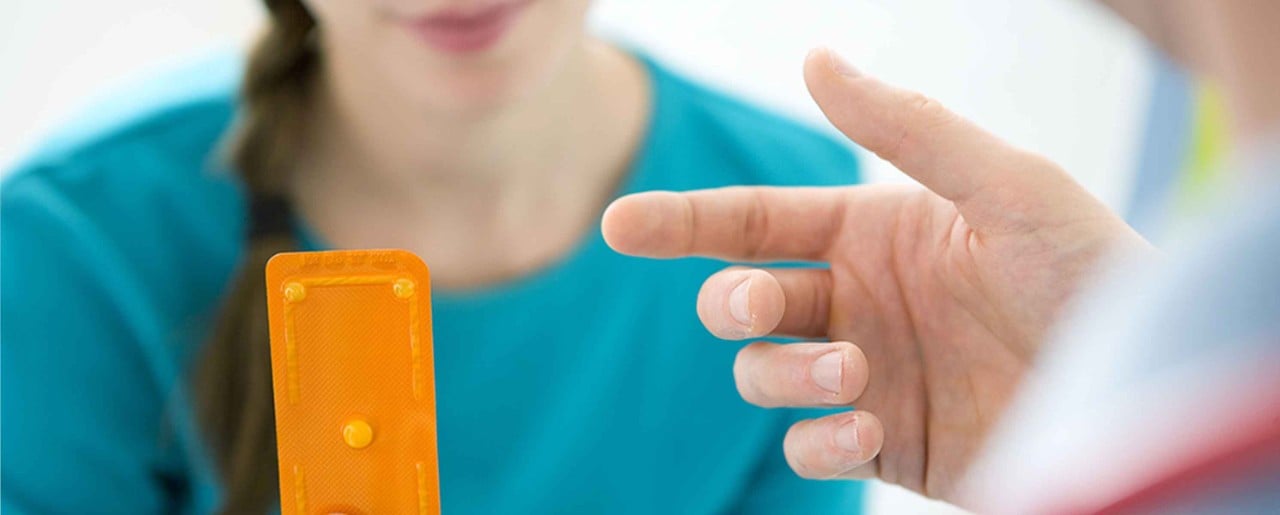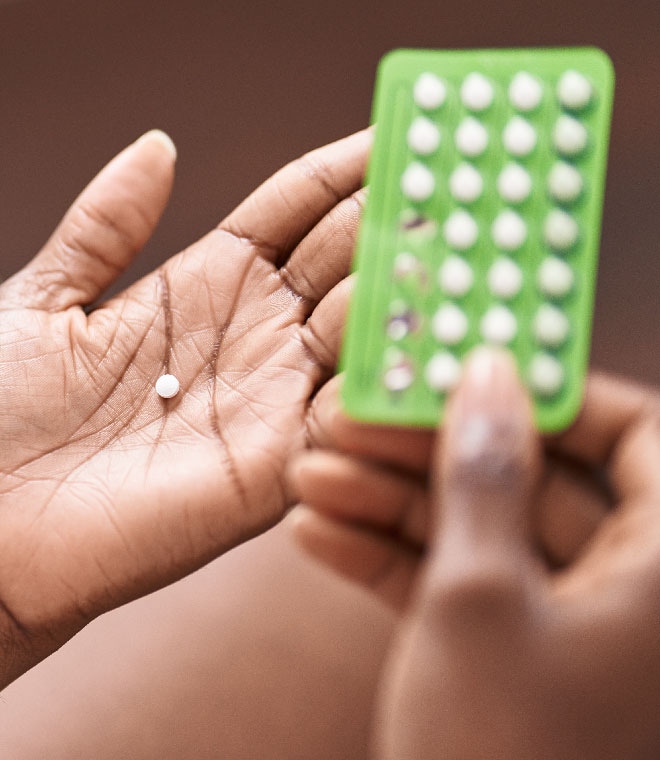Health
A guide to morning-after pills - Emergency Contraception
By Patricia Ann Convery, MD, Fellow, American College of Obstetrics and Gynecology Mar 13, 2024 • 9 min
Contraceptives are medicines, devices and surgical procedures that reduce the risk of pregnancy. While most contraceptives are used before intercourse occurs, there are medications and devices that can help reduce the risk of pregnancy after sex has occurred. These are known as emergency contraceptives.
What is emergency contraception?
Emergency contraception is a type of contraception, or birth control, that’s used after sex takes place. The word “emergency” refers to the fact that these contraceptives aren’t intended to be used as a primary means of birth control. Rather, they provide a way to reduce the chances of pregnancy in certain situations, including:
- A problem occurs with a barrier contraceptive, such as a condom breaking or a diaphragm moving out of place during sex
- A woman has sex after forgetting to take oral birth control pills
- A couple fails to use birth control during sex due to lack of access or another reason
- A woman believes she or her partner may have used contraceptives incorrectly
- A woman is sexually assaulted
There are two main types of emergency contraception: oral medications and the intrauterine device (IUD).
What is an IUD?
An IUD is a T-shaped device that’s placed in the uterus by a healthcare provider. Historically, the copper IUD (Paragard) was the only IUD with approval for emergency contraception. It does not contain hormones. The 52 mg levonorgestrel IUDs (Mirena and Liletta) were recently approved for emergency contraception as well. The lower-dose progestin IUDs are not approved for emergency contraception.
The most common side effects of the copper IUD are more severe menstrual cramps, bleeding between menstrual periods and heavier menstrual bleeding.
With progestin IUDs, the most common side effects include irregular uterine bleeding and the cessation of menstruation. Some women may also experience hormone-induced side effects, such as weight gain, acne or mood changes.
Your healthcare provider can help you determine which type of IUD is right for you.
What types of oral emergency contraceptives are available?
Commonly called morning-after pills, emergency contraceptive pills are medications that you take by mouth as soon as possible after having sex in order to prevent pregnancy. There are three main types: levonorgestrel, ulipristal acetate, and a combination of estrogen and progestin. All three types are most effective when taken as soon as possible after sexual intercourse, but they can be taken up to five days after.
Levonorgestrel
Available over the counter, levonorgestrel is typically a single pill, but it may also be offered in a two-dose regimen. It’s sold under the brand names Plan B One-Step, Take Action, My Way, Option 2, Preventeza, AfterPill, My Choice, Aftera and Econtra. It’s also available in several generic forms. The drug is most effective when taken within three days of sexual intercourse. If your healthcare provider writes you a prescription for levonorgestrel, your health insurance plan may help cover the cost.
Ulipristal acetate
Available under the brand name ella, ulipristal acetate is a single-dose medication that is most effective when used within 24 hours of unprotected sexual intercourse, but it can be taken up to five days after. It requires a prescription.
Combined hormonal birth control
In some cases, healthcare providers may recommend combined hormonal birth control pills containing estrogen and progesterone for use as emergency contraceptives. With this approach, women typically take two doses at a higher dosage than what is taken daily as a routine contraceptive.
To be effective for emergency contraception, combined hormonal birth control pills must usually be taken within five days of unprotected sex. The number of pills a woman should take at once varies, based on the specific type of birth control pills her healthcare provider has prescribed. As a result, it is best not to simply take additional birth control pills from your pack if you need emergency contraception. Instead, contact your healthcare provider for guidance on how to proceed.
How does the morning-after pill work?
Although they have different mechanisms of action, the three types of morning-after pills likely work by preventing or delaying ovulation, preventing the sperm from fertilizing the egg or preventing the attachment of the egg to the uterus. Ovulation occurs when an ovary releases an egg, which then travels through the fallopian tube where it can be fertilized by sperm on its way to the uterus.
Morning-after pills aren’t the same as abortion pills since they can’t terminate a pregnancy.
What are possible morning-after pill side effects?
Morning-after pills can cause similar side effects in some women, including:
- Late or early periods, or periods that are heavier or lighter than normal
- Spotting
- Nausea
- Vomiting
- Fatigue
- Headaches
- Dizziness
- Abdominal pain
- Breast pain
Side effects are generally mild and typically resolve quickly. However, if you experience vomiting shortly after taking any morning-after pills, contact your healthcare provider to see if you may need a repeat dose.
Does Plan B make you bleed?
Plan B and other brands of levonorgestrel have the potential to cause spotting or light bleeding or heavier menstrual bleeding. Ulipristal acetate (another type of morning-after pill) can also trigger spotting in some women.
Can you take Plan B on birth control?
Emergency oral contraceptives, like levonorgestrel (Plan B) and ulipristal acetate, can typically be used by women who take birth control pills. If you are on birth control and take the Plan B morning-after pill, continue taking your daily contraceptive pills unless your healthcare provider tells you otherwise. With ulipristal, you will usually need to delay restarting your oral contraceptive for five days after taking the emergency contraception medication. If you take an oral EC, you should also use a reliable barrier method of birth control (such as a condom with spermicide) for sexual intercourse during that same menstrual cycle to prevent pregnancy. Taking an oral EC can make your regular hormonal birth control less effective, so it’s important to use a barrier form of birth control as well.
Is the morning-after pill effective for women who are overweight or obese?
Oral emergency contraceptive pills may not work in women who have had certain bariatric surgery procedures, which can lead to malabsorption of the drugs. In addition, oral emergency contraceptive pills may not be effective in women who are overweight or obese (BMI of 30 or greater). In these cases, healthcare providers may recommend the IUD.
Does the morning-after pill prevent STIs?
No, the morning-after pill does not provide any protection against sexually transmitted infections (STIs). Emergency oral contraception is only effective at preventing pregnancy when used as directed. If you have sex without using a condom or if a condom fails, see your healthcare provider as soon as possible for STI testing and treatment, if necessary.
How can I get the morning-after pill?
Levonorgestrel can be purchased in pharmacies and other stores. If you’re having difficulty finding it, ask a pharmacist for assistance. To obtain ulipristal acetate, you’ll need a prescription from a healthcare provider.
Although you can purchase levonorgestrel emergency contraceptives over the counter, it’s a good idea to consult your healthcare provider first. They can help you weigh the available options and determine which is right for you.
Published March 2024.
References:
- https://www.ella-now.com/all-you-need-to-know-about-taking-ella/
- https://medlineplus.gov/birthcontrol.html
- https://www.mayoclinic.org/tests-procedures/paragard/about/pac-20391270
- https://www.mayoclinic.org/healthy-lifestyle/birth-control/basics/emergency-contraception/hlv-20049454
- https://medlineplus.gov/ency/article/007014.htm
- https://www.womenshealth.gov/a-z-topics/emergency-contraception
- https://my.clevelandclinic.org/health/treatments/23386-morning-after-pill
- https://www.mayoclinic.org/tests-procedures/morning-after-pill/about/pac-20394730
- https://www.planbonestep.com/faqs/
- https://my.clevelandclinic.org/health/treatments/23386-morning-after-pill
- https://www.acog.org/womens-health/faqs/emergency-contraception#:~:text=What%20are%20the%20different%20types,the%20counter%20without%20a%20prescription.




